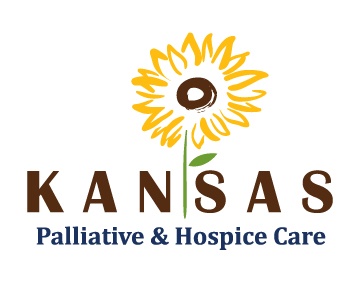PERSONALIZED SERVICES
MEDICAL PROFESSIONALSThere are major differences in hospice relationships – let us help build one that benefits you and your patients. Our team has the programs and the procedures to make our relationship one that will be valued by you and your staff.
What do your patients want?
- Our most frequent feedback received from family members who have had a patient on service with us is “I wish we had known about hospice sooner”.
- A Gallup poll reveals that close to nine in ten adults (88%) would prefer to die in their homes, free of pain, surrounded by family and loved ones: Kansas Palliative & Hospice Care works to make this happen.
- National Hospice and Palliative Care Organization research shows that 94% of families who had a loved one cared for by hospice rated the care as very good to excellent.
- U.S. Department of Health and Human Services has indicated that expanding the reach of hospice care holds enormous potential benefits for those nearing the end of life, whether they are in nursing homes, their own homes, assisted living facilities or in hospitals.
Do you need a speaker for your workplace, Faith organization or club?
The Center for Hospice & Palliative Care offers outreach programs to educate the community. Here’s a shortlist of offerings, but we can adapt to address your group’s needs:
- What is Palliative Care? What is Hospice Care? Is There a Difference?
- The Tough Conversation—Discussing End-of-Life Wishes
- Coping with Pain—Physical, Emotional, Psychological and Spiritual Care You Matter—Care for Yourself While Caring for Others
- Learn How to Cope with Caregiver Stress
- Coping with Grief and Loss

Health Care Professional – We Can Help You Deliver Better Results
National Hospice Foundation research shows that the top four services Americans feel are most important for a loved one who has less than six months to live are:
- Someone to be sure that the patient’s wishes are honored;
- Choice among the types of services the patient can receive;
- Pain control tailored to the patient’s wishes; and
- Emotional support for the patient and family.
Physicians Ask Our Team:
“What does CMS say about the Hospice Benefit and Physicians?”
- The Medicare program recognizes that terminal illnesses do not have predictable courses; therefore, the benefit is available for extended periods of time beyond six (6) months provided that proper certification is made at the start of each coverage period.
- Physicians, hospitals, and skilled nursing facilities are urged to recommend hospice care to beneficiaries whom they determine may benefit from it.
- The certification of terminal illness of an individual who elects hospice shall be based on the physician’s clinical judgment regarding the normal course of the individual’s illness.
- Hospice saves money by delivering care in the lowest cost location – homes.
“How do I identify a potential hospice patient?”
Below is the general criterion to look for when assessing hospice prospective patients. After identifying the prospective patient our hospice admissions nursing team assesses the patient to see whether the patient meets CMS criteria and if the patient and their family desire services.
Our team is able to assess the environment where the patient resides and how they look and respond in their own home rather than in an exam room. The information from our assessment is shared with the referring physician in a collaborative manner allowing for best results.
- Terminal diagnosis with probable prognosis of 6 months or less;
- Frequent hospitalizations or emergency room visits;
- Recurrent infections in last 6 months
- Weight loss of 10% or more in last 6 months
- Patient refuses hospitalization, aggressive treatment, or PEG tube placement
- Home health patient in declining status
The best results occur when the physician’s level of comfort with Kansas Palliative & Hospice Care is high, trusting that we are the best extension of their care and chance for highest quality of life for the patient in their remaining time.
“How to talk successfully with patients about hospice – preparation”
- Be prepared by confirming medical facts and providing an appropriate environment.
- Establish what the patient and family know about their condition by using open-ended questions.
- Determine (in advance) how the patient and family want to receive information.
- Deliver the information in a straightforward manner.
- Respond to emotions of the patient and family.
- Establish goals for care and treatment possibilities when possible.
- Formulate an overall plan with patient.
Kansas Palliative & Hospice Care would prefer to be the one having the discussion with the patient and their family. In our experience if the physician talks with the family the family hears “imminent death” whereas if we have the conversation they hear “my physician cares”. Generally speaking the second message is preferable. The above preparation makes either message deliverer more likely to be met with a positive response.
Hospice works to honor the wishes of those individuals with terminal illness who prefer to die in their own homes and on their own terms. There are major differences in hospice relationships – let us help build one that benefits you and your patients. Our team has the programs and the procedures to make our relationship one that will be valued by you and your staff. Contact us today to learn the many benefits of a relationship with Kansas Palliative & Hospice Care and the difference we can make together in the lives of those most in need of care!
